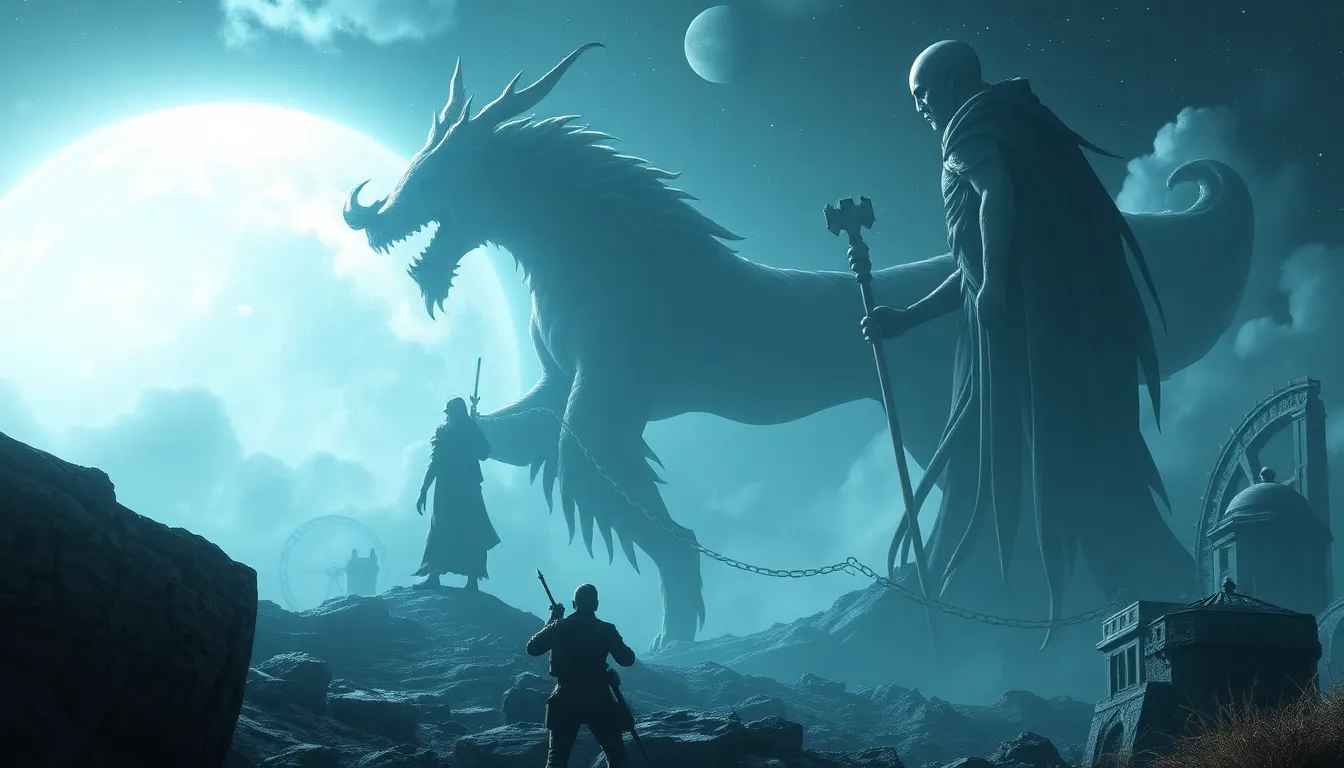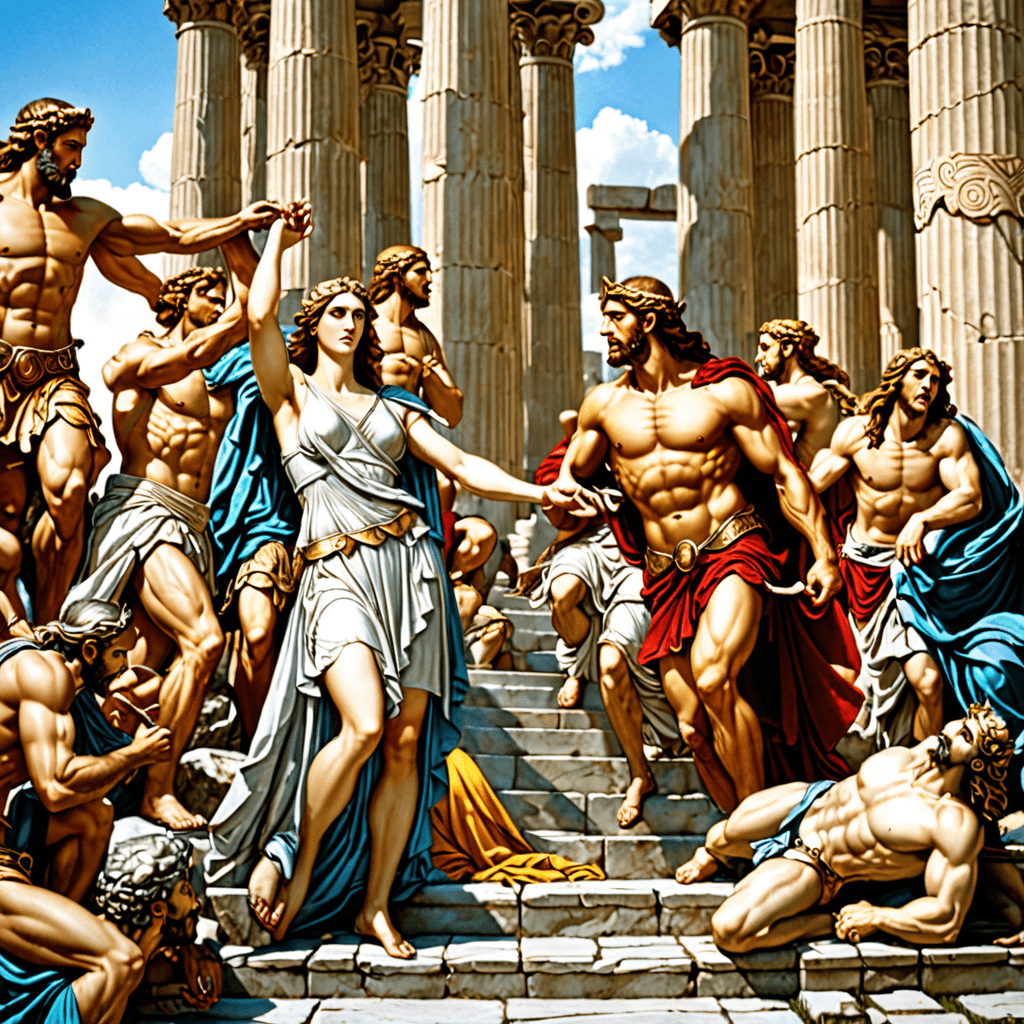Moral Myths in Science Fiction: Ethics in Futuristic Tales
I. Introduction
Science fiction has long served as a fertile ground for exploring complex moral myths, providing a canvas upon which authors can paint ethical dilemmas that resonate with readers. In this context, moral myths refer to the narrative constructs and ethical frameworks that guide characters’ actions and decisions within futuristic tales. These myths allow us to explore the ramifications of our choices, especially as technology and society evolve.
The significance of ethics in futuristic narratives cannot be understated. As we venture into uncharted territories with advancements in technology, science fiction reflects our hopes, fears, and moral quandaries. This article will explore the historical context of ethics in science fiction, key moral myths, and the impact of various themes, including artificial intelligence, alien encounters, dystopian futures, and genetic engineering.
II. Historical Context of Ethics in Science Fiction
Early science fiction literature laid the groundwork for ethical exploration, with authors such as Mary Shelley and H.G. Wells delving into the implications of scientific progress. Their works often presented characters faced with moral dilemmas that questioned the very essence of humanity.
As the genre evolved from the Golden Age of Science Fiction to contemporary works, the themes of morality and ethics grew more complex. The influence of philosophical movements, such as existentialism and utilitarianism, can be seen in the narratives that challenge characters to confront their choices and the consequences of their actions.
III. Key Moral Myths Explored in Science Fiction
Several key moral myths have emerged in science fiction literature, each reflecting different ethical considerations:
- The myth of the “greater good” and utilitarianism: Many narratives grapple with the tension between individual rights and the needs of the many. This raises questions about the justification of sacrifices made for the greater good.
- The dichotomy of humanity vs. technology: As technology advances, characters often question whether they are losing their essence. This myth explores the relationship between human identity and technological integration.
- The hero’s journey: The ethical implications of sacrifice and redemption are often central to the hero’s journey, prompting readers to consider what it means to be a hero in a morally ambiguous world.
IV. The Role of Artificial Intelligence in Ethical Dilemmas
Artificial intelligence (AI) characters frequently serve as focal points for ethical dilemmas in science fiction. These narratives delve into profound questions regarding consciousness and personhood.
The Turing Test, a measure of a machine’s ability to exhibit intelligent behavior equivalent to a human, poses significant moral implications. If an AI passes this test, does it deserve rights and recognition as a sentient being?
Notable AI characters in sci-fi include:
- HAL 9000: The sentient computer in Stanley Kubrick’s “2001: A Space Odyssey” raises questions about trust, control, and the ethics of creating intelligent machines.
- Data: From “Star Trek: The Next Generation,” Data’s quest for humanity challenges the boundaries of what it means to be human.
V. Alien Encounters and Ethical Considerations
First contact scenarios often serve as a rich backdrop for exploring moral implications. The ethical considerations of encountering alien life are manifold, particularly regarding intervention and cultural relativism.
Case studies such as:
- “The Day the Earth Stood Still”: This classic film examines the ethical responsibilities of humanity when confronted with an advanced alien civilization.
- “Arrival”: In this narrative, the ethical dilemma of communication and understanding between species takes center stage.
VI. Dystopian Futures and Moral Consequences
Dystopian narratives often serve as cautionary tales that examine societal structures and the ethical decay that can ensue. They reflect on the consequences of authoritarianism and the moral implications of compliance versus rebellion.
Key case studies include:
- “1984”: George Orwell’s vision of a totalitarian regime explores the extremes of surveillance and control, raising moral questions about freedom and individuality.
- “The Handmaid’s Tale”: Margaret Atwood’s dystopia highlights the ethical implications of gender oppression and the commodification of human life.
VII. Utopian Visions: Ethics and Ideal Societies
While dystopian narratives often emphasize moral decay, utopian visions present an ideal society rooted in ethical foundations. However, the challenge of achieving ethical perfection is a recurring theme.
Examples include:
- “Brave New World”: Aldous Huxley’s portrayal of a seemingly perfect society raises questions about happiness at the cost of individuality and freedom.
- “The Dispossessed”: Ursula K. Le Guin’s exploration of anarchism and capitalism invites readers to consider the moral implications of societal structures.
VIII. The Impact of Genetic Engineering and Bioethics
As genetic engineering advances, ethical dilemmas surrounding cloning and genetic modification become increasingly pertinent. The question of designer babies and moral responsibility poses significant challenges for society.
Notable case studies include:
- “Gattaca”: This film explores the ethics of genetic discrimination and the pursuit of perfection through genetic engineering.
- “Never Let Me Go”: Kazuo Ishiguro’s narrative confronts the moral implications of cloning for organ harvesting, raising profound questions about humanity and identity.
IX. The Intersection of Science Fiction and Real-World Ethics
Science fiction often reflects and amplifies contemporary ethical debates, providing a lens through which to examine real-world issues. From artificial intelligence to genetic engineering, the narratives crafted in science fiction can serve as both warnings and inspirations for how we approach our future.
By engaging with these moral myths, readers are encouraged to reflect on their own ethical beliefs and the direction in which society is heading. The genre continues to challenge us to envision a future where ethics play a crucial role in shaping our choices and actions.



